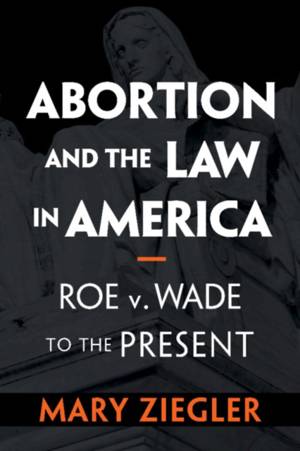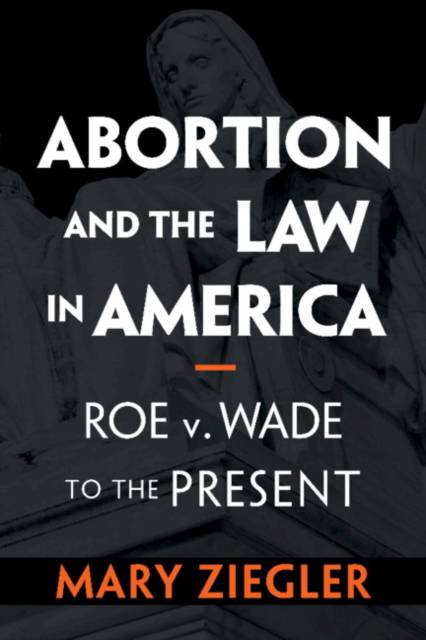
- Afhalen na 1 uur in een winkel met voorraad
- Gratis thuislevering in België vanaf € 30
- Ruim aanbod met 7 miljoen producten
- Afhalen na 1 uur in een winkel met voorraad
- Gratis thuislevering in België vanaf € 30
- Ruim aanbod met 7 miljoen producten
Zoeken
€ 41,95
+ 83 punten
Uitvoering
Omschrijving
With the Supreme Court likely to reverse Roe v. Wade, the landmark abortion decision, American debate appears fixated on clashing rights. The first comprehensive legal history of a vital period, Abortion and the Law in America illuminates an entirely different and unexpected shift in the terms of debate. Rather than simply championing rights, those on opposing sides battled about the policy costs and benefits of abortion and laws restricting it. This mostly unknown turn deepened polarization in ways many have missed. Never abandoning their constitutional demands, pro-choice and pro-life advocates increasingly disagreed about the basic facts. Drawing on unexplored records and interviews with key participants, Ziegler complicates the view that the Supreme Court is responsible for the escalation of the conflict. A gripping account of social-movement divides and crucial legal strategies, this book delivers a definitive recent history of an issue that transforms American law and politics to this day.
Specificaties
Betrokkenen
- Auteur(s):
- Uitgeverij:
Inhoud
- Aantal bladzijden:
- 326
- Taal:
- Engels
Eigenschappen
- Productcode (EAN):
- 9781108735599
- Verschijningsdatum:
- 26/03/2020
- Uitvoering:
- Paperback
- Formaat:
- Trade paperback (VS)
- Afmetingen:
- 163 mm x 224 mm
- Gewicht:
- 453 g

Alleen bij Standaard Boekhandel
+ 83 punten op je klantenkaart van Standaard Boekhandel
Beoordelingen
We publiceren alleen reviews die voldoen aan de voorwaarden voor reviews. Bekijk onze voorwaarden voor reviews.











